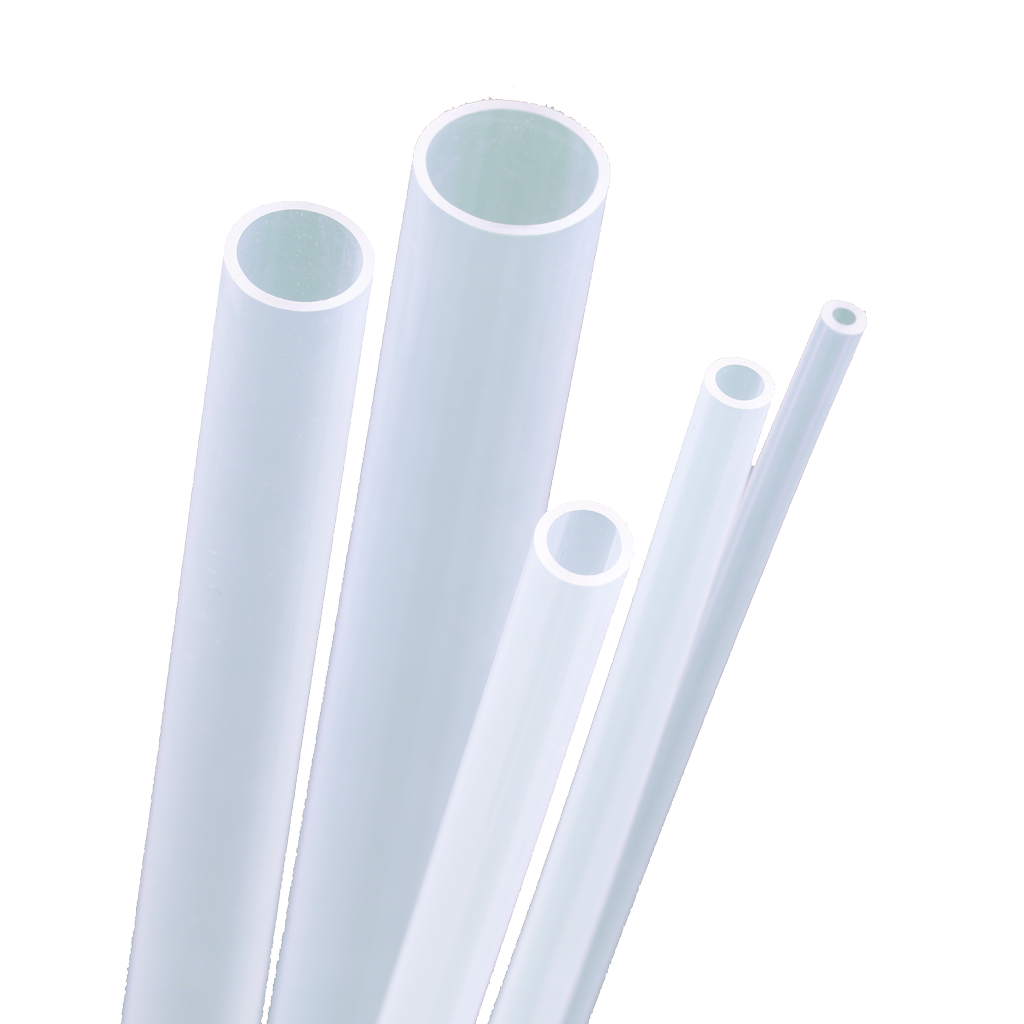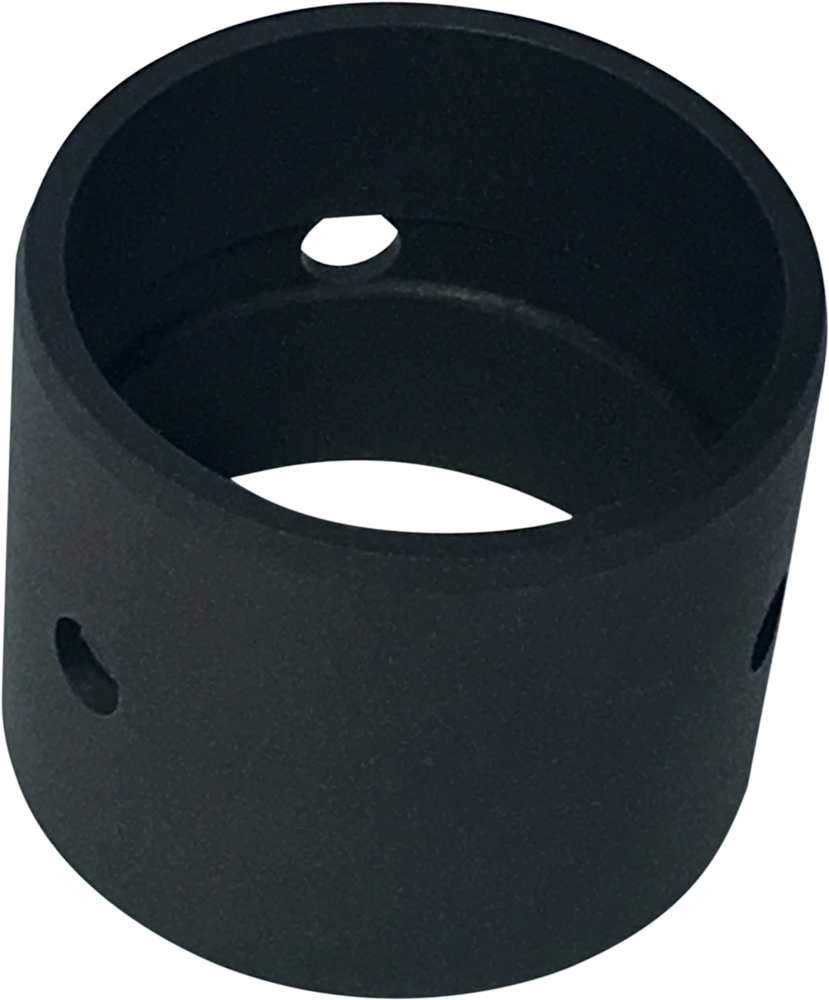PFA material is a fluoropolymer preferred in high purity application
PFA, Perfluoroalkoxy alkane, is also a part of the fluoropolymer family. It offers properties near that of PTFE (mostly known under the Teflon® brand) and has lots of applications in high purity sectors.
PFA is a versatile high performance polymer
PFA is produced by copolymerization of perfluoroethers and hexafluoropropylene (the monomer used to produce PTFE). The main difference in its structure is that some carbon atoms are linked to a fluoroether group, with an oxygen atom, and not just carbon-fluorines bonds.
Properties of PFA are very similar to PTFE or FEP. The thermal stability is close to PTFE: PFA has a melting point, at 305°C, lower than PTFE while still allowing for a large range of applications. PFA also exhibits low friction.
Just like FEP, PFA is injection moldable and can be directly extruded. This effectively gives more versatility in designing PFA parts.
PFA tubes are generally more flexible than PTFE tubes, but don’t reach their flexlife. Compared to FEP, PFA offers globally better mechanical properties at high operating temperatures.
The production of PFA polymer and its transformation are well-known for their low contamination level. Therefore, PFA is often preferred to other fluoropolymers in high purity applications, like the semi-conductor industry or pharmaceutical production.

PFA properties
- High flexibility
- Wide operating range from -200°C to 260°C
- Translucent
- Good flow and creep resistance
- Low friction coefficient
- Anti-aging properties, with UV resistance
Chemical properties
- High chemical inertness
- Excellent Corrosion and Chemical resistance
- Low water absorption
- Low gas permeability
- High purity grades and FDA grades available
Electrical properties
- Excellent electrical properties
- Excellent dielectric properties
- Best dissipation factor
PFA compounds
PFA is preferred for high purity applications. It is renowned for applications demanding no contamination. Chemical and semi-conductor industries are good examples of applications for virgin PFA.
For other mechanical applications, a large range of PFA compounds are available. For this fluoropolymer, improved mechanical applications combined with its outstanding chemical resistance answer most demanding applications. Carbon or glass fibers are typical fillers to enhance stiffness, compressive strength or lower its expansion rate. These compounds find applications in lots of industrial equipment, like the chemical industry.
Customizing compounds for each application requires a strong experience in high performance polymer industry, and is one of 3P assets.


